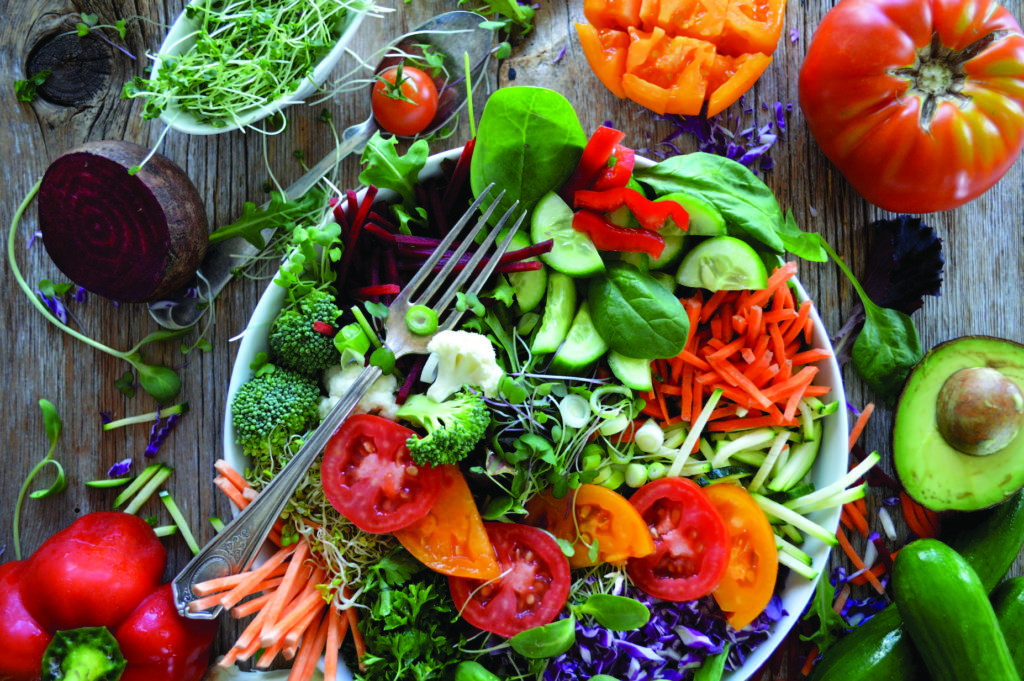
To ensure the good bacteria in your gut are thriving, Stephanie Boulay, a registered dietitian with Coastline, recommends eating 30 different types of plants each week.
While we can’t see them, our bodies are loaded with microorganisms, or microscopic organisms, which include bacteria, fungi and viruses. Taken together, these tiny microbes are referred to as the human microbiome.
Researchers from the National Institutes of Health (NIH) note that most of the microbes in our bodies are useful. They help us digest food and prevent infections in our organs, for instance. Certain things can harm these helpful microbes, however, and if the good bacteria aren’t thriving, they can be replaced by bad bacteria.
According to the NIH, changes in your body’s microbiome are linked with numerous health problems, including diabetes, obesity and cancer. So how do we make sure that the good guys win? You can start by looking at what you eat.
Stephanie Boulay, a registered dietitian at Coastline, said the best way to ensure that good bacteria thrive is by eating dietary fiber. Fiber is the part of plant-based foods that cannot be completely broken down by our digestive tract.
“Your body cannot digest fiber – it’s meant for the bacteria in your gut,” Boulay explained at a recent presentation at the Dartmouth Council on Aging. “And you want a lot of different kinds of bacteria.”
That translates into eating a wider variety of fruits and vegetables. Boulay said a good goal is to eat 30 different kinds of plants every week.
“That sounds overwhelming. But, if I have a handful of trail mix that has peanuts, cashews, almonds and raisins, you have four plants right there,” she said. “You can get a wide variety fairly quickly before you even realize it.”
Seeds and spinach could be added to smoothies, for example. And other dishes, like roasted vegetables, salads and fruit salads, can be adjusted to include different types of plants.
Eating more plants is also helpful when taking antibiotics. Antibiotics, which are prescribed to fight bacterial infections, kill both good and bad bacteria. Boulay recommended that if you’re on an antibiotic, the best thing to do is to start incorporating more plants into your diet to restore the good bacteria.
Boulay warned that if you’re adding more fiber to your diet, it could also make you feel bloated. Which is why you should also be drinking more water.
“If you don’t drink liquids, the fiber will sit in your gut, which can make you feel uncomfortable,” she said. “When you drink water, it helps the fiber to swell and pass through your gut.”
To keep your microbiome in balance, you can also avoid some of the things that kill off good bacteria. Boulay said the health advice you often hear will help your gut stay healthy. That includes cutting back on sugar or artificial sweeteners, processed meats, and alcohol.
Beyond your diet, Boulay said studies have linked other lifestyle choices to the microbiome. Smoking cigarettes, not getting enough sleep, stress, and not getting enough exercise can have a negative impact on your microbiome.
She recommends making small changes at first – like slowly cutting back on the amount of sweetener you add to your morning coffee – that can add up over time.


Recent Comments